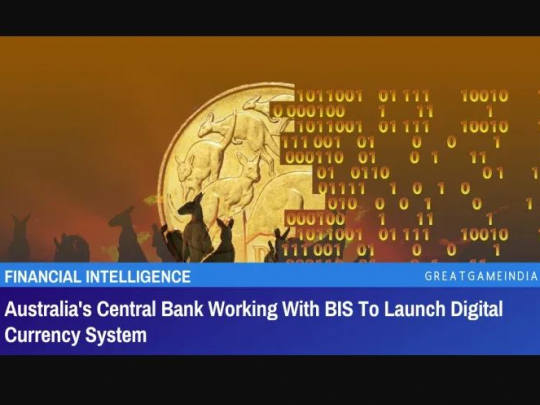Australia’s Central Bank Working With BIS To Launch Digital Currency System

An article in The Sydney Morning Herald has reported on a pilot program that Australia’s Central Bank is currently working on with BIS to launch a digital currency system, but it has the possibility that the access of citizens to the economy could be cut off at any time should they say or do anything in defiance of the authorities.
Together with the Bank for International Settlements (the central bank of central banks), Australia’s Reserve Bank is undertaking a pilot program over the course of the next year to evaluate the “benefits” of a blockchain-based digital currency system. In the BIS’s efforts to create CBDCs (central bank digital currencies), the central bank has been added to a long list of participants with the aim of introducing them internationally by 2025–2030.
It’s vital to keep in mind that significant economic developments would need to take place within the next few years before CBDC would be a practical choice for the general public. Despite the convenience of electronic transactions, a significant segment of the population still favors cash. Recent US surveys indicate that a minimum of 37% of people still prefer using cash to other payment options like credit and debit cards. In Australia, the percentage is at around 32%.
Additionally, the use of digital payment methods does not necessarily indicate a shift from the idea of cash in society; rather, it merely demonstrates a preference for ease. People still like to know that they have the option of using cash if they need it or want it, but central banks are actively attempting to remove this option within the next 8 years.
CBDCs lack privacy by nature, much as all blockchain-based currency systems. Blockchain technology necessitates a ledger of transactions that may be monitored by governments by its very nature. Even though it is fiat, physical money at least has anonymity.
The idea of trade privacy would completely vanish from society within a generation of the widespread use of CBDCs. Not only that, but there is a good probability that governments will be able to freeze accounts or even erase your savings at the touch of a button if these currencies are linked to a social credit system like the one employed in communist China. Additionally, there would be no way to conduct trade without actual cash. A individual who was deemed “problematic” might be excluded from the economy at any time.
Given the BIS’s extensive involvement in national digital currency efforts, it is likely that the ultimate objective of CBDCs will be the creation of a single global digital currency that will eventually supplant all other digital currencies. Also included in this collaboration are the World Bank and IMF.
There is little chance that central banks will be able to force the issue of CBDCs unless there is an economic downturn or crash that sparks a public outcry for alternatives to existing currencies. There are many physical currencies in use around the world, and at least 30% of each western nation prefers cash. Meaning that in order to convince people to embrace a rapid shift to a cashless society before 2030, banking elites will require a crisis that seriously undermines the very buying power of various currency systems.
Such a system has numerous drawbacks and a wide range of abuse potential beyond the concept of fiat printing. Instilling terror in people as they consider the possibility that their access to the economy could be cut off at any time should they say or do anything in defiance of the authorities, CBDCs would grant banks and governments absolute control over the populace.
CBDCs will be marketed by banks and politicians as the pinnacle of convenience and a necessary move for economic stabilization. They won’t speak about the extensive degree of control they will get as a result.
- Source : GreatGameIndia


















